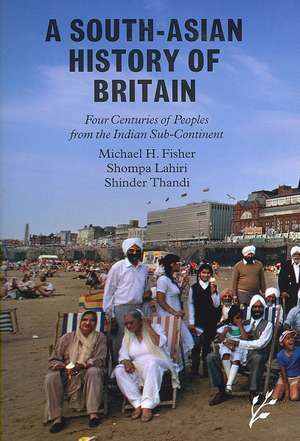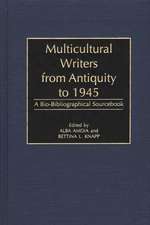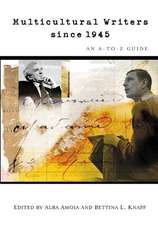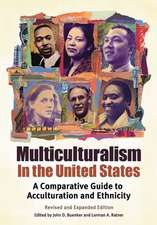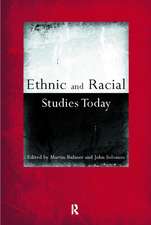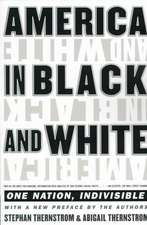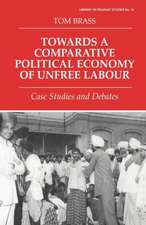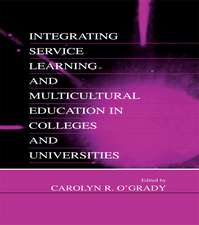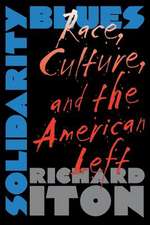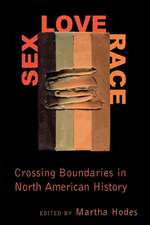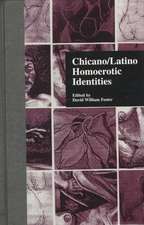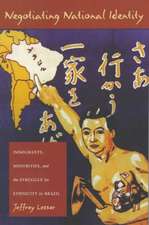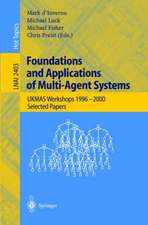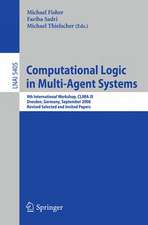A South-Asian History of Britain: Four Centuries of Peoples from the Indian Sub-Continent
Autor Michael H. Fisher, Shompa Lahiri, Shinder Thandien Limba Engleză Hardback – 29 iun 2007 – vârsta până la 17 ani
Preț: 238.64 lei
Preț vechi: 409.90 lei
-42% Nou
Puncte Express: 358
Preț estimativ în valută:
45.66€ • 47.68$ • 37.79£
45.66€ • 47.68$ • 37.79£
Carte tipărită la comandă
Livrare economică 04-18 aprilie
Preluare comenzi: 021 569.72.76
Specificații
ISBN-13: 9781846450082
ISBN-10: 184645008X
Pagini: 250
Dimensiuni: 156 x 235 x 27 mm
Greutate: 0.59 kg
Ediția:New.
Editura: Bloomsbury Publishing
Colecția Greenwood
Locul publicării:New York, United States
ISBN-10: 184645008X
Pagini: 250
Dimensiuni: 156 x 235 x 27 mm
Greutate: 0.59 kg
Ediția:New.
Editura: Bloomsbury Publishing
Colecția Greenwood
Locul publicării:New York, United States
Notă biografică
Michael H. Fisher is Robert S. Danforth Professor of History, Oberlin College, USA. His most recent book is Counterflows to Colonialism: Indian Travellers and Settlers in Britain, 1600-1857 (2004).Shompa Lahiri is Harry Weinrebe Research Fellow at the Centre for the Study of Migration, Queen Mary, University of London. She is the author of Indians in Britain: Anglo-Indian Encounters, Race and Identity, 1880-1930 (2000).Shinder Thandi is Head of Department of Economics, Finance and Accounting at Coventry University. His most recent book was People on the Move: Punjabi Colonial and Post Colonial Migration (2004).
Cuprins
Acknowledgements Introduction Chapter 1: Earliest South-Asian Visitors and Settlers during the Pre-colonial Period, c 1600-1750s Michael H. FisherChapter 2: South-Asian Arrivals during Early Colonialism, 1750s-1790s Michael H. FisherChapter 3: Widening and Deepening of the South-Asian Presence in Britain, 1790s-1830s Michael H. FisherChapter 4: South-Asian Settlers and Transient Networks and Communities in Britain, 1830s-1857 Michael H. FisherChapter 5: Indian Victorians, 1857-1901 Shompa LahiriChapter 6: From Empire to Decolonisation, 1901-1947 Shompa LahiriChapter 7: Migrating to the 'Mother Country', 1947-1980 Shinder S. ThandiChapter 8: The 1980s and After: From Adversity to Celebration Shinder S. ThandiList of Illustrations Bibliography About the Authors Notes Index
Recenzii
The authors offer a history of one of Britain's largest and most visible minorities. The book covers the arrival of the first South Asian settlers in the 1600s right up through the present day..This book is an important and well-written contribution to the histories of both Britain and the South Asian diaspora. With the rise of the sub-continent in global affairs, and the vast contribution of the South Asians abroad, this book will be a welcome addition in a wide variety of fields, as well a fascinating read for the interested layman.
Some have come out of curiosity and some to get a Western education, but many came from South Asia to Britain to find jobs and a new life. In crossing the black water from one culture to another they did not cut their ties. In fact, they enriched the culture to which they came immeasurably despite their experiencing racism and, typically, economic deprivation. The authors, who hail from the US and the UK, offer the first full-length treatment of the history of Britons of Indian, Pakistani and Bangladeshi descent, from those who served Queen Victoria as surgeons and members of Parliament to those who struggle now to express their religious identity. Their scope ranges from pre-colonial immigration to the Indian Victorians to the era of decolonization and to the present, which holds within it a spirit of celebration within adversity.
This book tells of a remarkable south Asian success story, and tells it well. This said, it does not shy away from some of the difficulties and nuances of that story.
Superb survey of South Asians in Britain in what is a well-produced and inexpensive book.
[A]n interesting book..diligently researched.
Meticulously researched, A South-Asian History of Britain is an absorbing addition to the growing literature on the multifaceted experiences of people who have traveled to these islands from the Indian subcontinent over the last 400 years. . . . Digging into an extensive range of scattered archives, and deploying a very full range of research modalities, it weaves a rich narrative that throws much fresh light on the diverse and historically complex evolution of South Asian life in Britain as it engaged with the full spectrum of British people and British institutions.
What Jeffrey Green and Paul Gilroy have done for the African diaspora, this volume and the other works of its co-authors have accomplished for South Asians.
Some have come out of curiosity and some to get a Western education, but many came from South Asia to Britain to find jobs and a new life. In crossing the black water from one culture to another they did not cut their ties. In fact, they enriched the culture to which they came immeasurably despite their experiencing racism and, typically, economic deprivation. The authors, who hail from the US and the UK, offer the first full-length treatment of the history of Britons of Indian, Pakistani and Bangladeshi descent, from those who served Queen Victoria as surgeons and members of Parliament to those who struggle now to express their religious identity. Their scope ranges from pre-colonial immigration to the Indian Victorians to the era of decolonization and to the present, which holds within it a spirit of celebration within adversity.
This book tells of a remarkable south Asian success story, and tells it well. This said, it does not shy away from some of the difficulties and nuances of that story.
Superb survey of South Asians in Britain in what is a well-produced and inexpensive book.
[A]n interesting book..diligently researched.
Meticulously researched, A South-Asian History of Britain is an absorbing addition to the growing literature on the multifaceted experiences of people who have traveled to these islands from the Indian subcontinent over the last 400 years. . . . Digging into an extensive range of scattered archives, and deploying a very full range of research modalities, it weaves a rich narrative that throws much fresh light on the diverse and historically complex evolution of South Asian life in Britain as it engaged with the full spectrum of British people and British institutions.
What Jeffrey Green and Paul Gilroy have done for the African diaspora, this volume and the other works of its co-authors have accomplished for South Asians.
